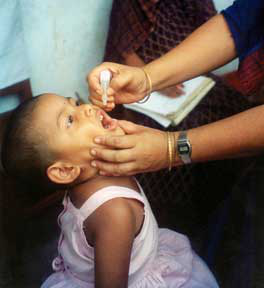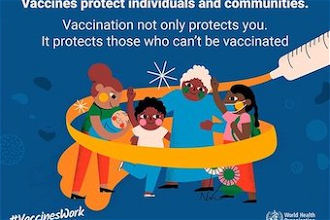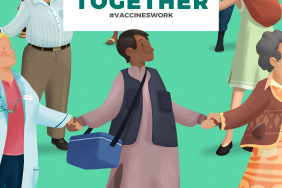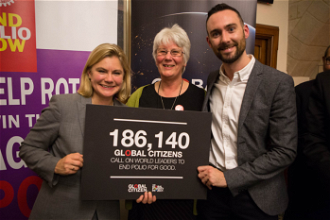Viewpoint: A polio-free Africa?

Child receives polio drops
Polio is a crippling and potentially fatal viral disease that mainly affects children under the age of five. There is no cure for polio, but there are safe and effective vaccines. Until the 1950's polio crippled thousands of people a year attacking the nervous system and causing irreversible paralysis within hours of the infection. Thanks to rigorous vaccination programmes the disease has been reduced by more than 99%. (down from 350,000 cases in 1998 to 130 cases of Wild polio virus in 2014).
Nigeria had struggled to contain polio since some northern states imposed a year long vaccine ban in mid 2003. Since 2009 when all religious leaders pledged to support immunization and push parents to have their children vaccinated immense progress has been made. On 24 July 2015 the world celebrated that Nigeria had been wild polio virus free for one year. The Global Polio Eradication Initiative commended the hard work of the Nigerian government, partners, religious and community leaders, and health workers for such strong progress towards stopping polio. The hope is that next month the entire African continent will have gone a full year without a polio infection. The last case recorded in Africa occurred in on 11 August 2014.
The Polio Eradication initiative commented that: 'While Nigeria is closer than ever to ending polio, the job is not yet finished. At least two more years must pass without a case of wild poliovirus for Nigeria to be certified polio-free along with the rest of the WHO's African region. To achieve this goal, Nigeria and all countries in Africa must maintain domestic funding for polio, ensure high-quality surveillance for poliovirus, strengthen vaccination campaigns, particularly in hard-to-reach and insecure areas, and improve routine immunization. At the same time, until polio has been eradicated from all remaining infected areas, all countries must maintain high immunity levels and strong disease surveillance to minimize the risk and consequences of re-infection.' http://bit.ly/1gtTWwI
Catholics are committed to 'The Gospel of Life' and my sisters, the Daughters of the Cross of Liege are involved in the vaccination programme of Pakistan, indeed Dr Steven White, a past-president of the Catholic Medical Association and current chair of the association's health care policy committee has said that: "As Catholic physicians, we recognize the incredible value of vaccinations not only today but in the last century in eradicating diseases that many people are not familiar with anymore" including polio, rubella, smallpox, diphtheria, whooping cough, tetanus and others.
Given the status of Kenya as a powerhouse of the East African region and the danger of polio infection I am perplexed to read that Kenya's Catholic bishops have recently urged a boycott of a polio vaccination programme in Kenya until its safety has been established by independent tests. (The vaccine has been vigorously tested using the United Nations prequalification programme run by the World Health Organization). Their actions are encouraging Catholic families to deny their children access to this life saving polio vaccine.
According to the Global polio eradication initiative Kenya is one of the countries in the "wild poliovirus importation belt" - a band of countries stretching from west Africa to central Africa and the Horn of Africa, which are recurrently re-infected with imported poliovirus. The immediate priority is to stop all active outbreaks using mop-up campaigns with oral polio vaccine in the infected areas, combined with a series of large-scale, synchronized supplementary immunization activities across most of the "importation belt" countries to protect against further importations.
On 4 October 2010 Pope Francis said to the World Council of Churches that "We are called to reach out to those who find themselves in the existential peripheries of our societies and to show particular solidarity with the most vulnerable of our brothers and sisters: the poor, the disabled, the unborn and the sick, migrants and refugees".
The strategy to eradicate polio is based on preventing infection by immunizing every child until transmission stops and the world is polio free. It is therefore to be hoped that the Catholic bishops in Kenya will speedily reconsider their position in order to ensure that the whole of Africa may be able to remain polio free.
Sister Gillian Price FC


















